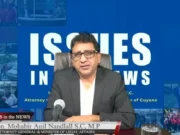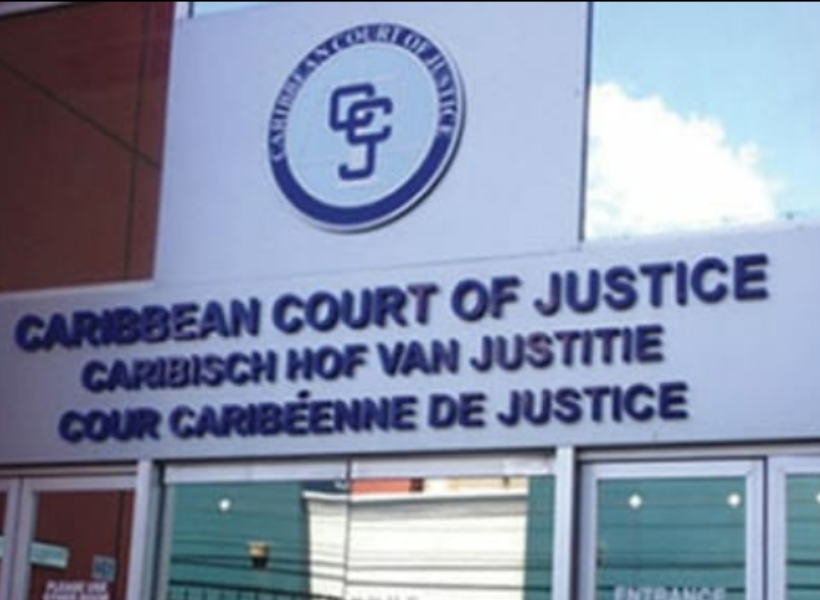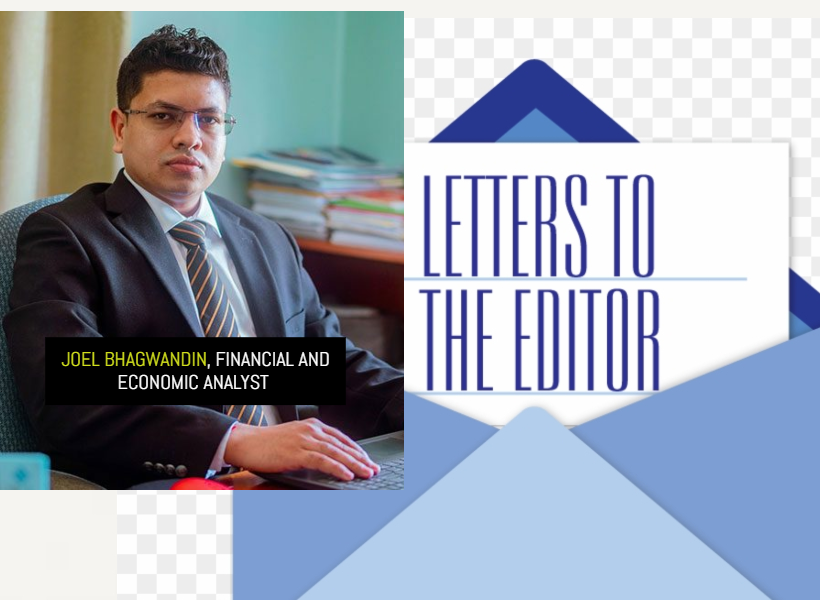Dear Editor,
The Economic Advisor to the Leader of the Opposition (LO), Elson Low recently challenged my analysis in respect of the public sector’s employment cost to the national treasury. His argument is that the oil revenues should be used to expand the current expenditure side of the budget. While this is a convenient and popular argument for the political opposition, such a policy is arguably a recipe for bankruptcy, which is consistent with the opposition’s track record in government.
It is quite unfortunate, however, that instead of defending his argument, given the position he holds, by demonstrating a sound robust alternative economic development plan, crafted within a sustainable fiscal framework, he delivered several calculated and politically motivated remarks about the undersigned.
On November 21st, 2023, I had dedicated an article critiquing the Political Opposition’s alternative development plan, an article which no one from the Parliamentary Opposition, Elson Low included, challenged.
Notwithstanding, for his benefit, here is the link to the full article to which I look forward to his in-depth counter arguments https://www.guyanastandard.com/2023/11/21/critical-review-of-the-oppositions-proposed-alternative-development-plan/.
For ease of reference, the article concluded with the following questions in respect of their supposed alternative economic plan:
i) What will the Opposition do differently, and how will they achieve their objectives in terms of a livable wage for both the public and private sectors? What are the policies it will implement? In the case of the private sector, for example, imposing a minimum wage threshold in an abstract manner that smaller firms may not be able to sustain could have adverse effects, such as, forcing those firms to reduce the size of their workforce, which would push up the rate of unemployment.
ii) How will they maximize revenues from the oil and gas sector and what are some of the alternative fiscal terms it will seek to implement? Bearing in mind that in phasing out the development, the risk of ultimately having stranded resources in the long run becomes higher, at the expense of short term and short-lived gains. How would they balance this risk?
iii) More so, taking into account that the exploration activities pursuant to the 2016 PSA expires in 2027, and so far, only 1.45% of the entire Stabroek Block has been explored to date (inclusive of the 46 discoveries). This means that by 2035-2038, in another 12-15 years from now, it is likely that all of the capital investment (exploration + development costs) will have been recovered by then, thereby increasing Guyana’s profit share up from 12.5% to about 25%, all other things being equal.
iv) What do they propose to do differently to expand the non-oil economy, especially since their economic philosophy hinges on increased spending on the current expenditure side of the national budget versus capital expenditure, which is not sustainable in the long-term.
v) How will they save $200 billion annually from procurement wastage when the evidence is overwhelmingly to the contrary during their tenure in government previously, as per the Auditor General’s audit reports?
Before I conclude, it would be remiss of me not to address Mr. Low’s miscalculated, misdirected, misinformed, and highly politically enviously inspired comments towards the undersigned. I shall now address him accordingly hereunder.
As one of five constitutional officers of the Public Procurement Commission (PPC), two of whom were nominated by the Political Opposition, and three nominated by the Government, all through the Public Accounts Committee, then approved by way of a two-thirds majority in the National Assembly, then appointed by his Excellency Dr. Mohamed Irfaan Ali, President of the Cooperative Republic of Guyana, the earnings of constitutional officers is a matter of public information. Further for his edification, the PPC owing to it being one of the latest amendments to the Guyana Constitution, public sector salary increases do not apply to the Commissioners.
Having said that, Mr. Elson Low does not appear to have any proven professional track record that could withstand any iota of public scrutiny other than an embellished résumé. His only accomplishment, in this regard, is where he claimed that he worked with “Goldman Sachs” in the United States, though he never stated his designation. He’s always been cleverly careful to avoid stating the designation/position he held at that institution. By contrast, the undersigned held senior management portfolios with several organizations, of which one was a “Big 4” global professional services firm. Yet, the undersigned has never boasted about this as an accomplishment.
Although he has cleverly avoided stating what he did at Goldman Sachs, it is easily deducible that it is highly likely he worked as no less than an intern or a junior level analyst at Goldman Sachs―after he completed his undergraduate studies in the U.S in the year 2015.
Following this short stint, in February 2018, he returned to Guyana, where he obtained his first real job in Guyana as a policy analyst at the State Asset Recovery Agency (SARA). There, his earnings was $434,000, plus, I believe gratuity which would take it up to over $538,000/monthly, with other benefits. For a first job earning this much with no prior work experience, except for two years internship after college, is huge. Bear in mind that he remains on the payroll of taxpayers since he is a paid adviser of a constitutional office, viz-á-viz, the Office of the Leader of the Opposition. I rather suspect he has managed to secure the same package, which he is duty bound to publicly disclose.
By contrast, my first job nearly sixteen years ago, I started at a junior clerk level in the financial sector, earning $50,000/month. I worked and studied, took loans to finance my tertiary education, which I completed in 2017. At this level, my earnings was less than $150,000…It was not until 2021 (after accumulating 14 years of professional experience), when I was employed by a global firm at a senior management level, my earnings then jumped to a seven digits figure. Approximately one year thereafter, I was nominated, then subsequently appointed as a constitutional officer. Consequently, I opted to resign from the global firm, at the cost of a substantial pay cut to take up that appointment.
Suffice it to state, despite his inadequate experience professionally, more so at a high level, I would like to urge the economic advisor to the Leader of the Opposition to elevate the quality of his contributions that is more in-depth and rigorous. After all, he too, is on the taxpayers payroll and therefore he must continuously seek to do so, instead of his usual theatrical performance. He consistently exhibits an unusual inability to delve beyond the more than half-century old political narrative and philosophy associated with the political opposition. Thus, I invite him once again to robustly defend the opposition’s alternative economic plan beyond mere rhetoric, particularly by demonstrating how the opposition proposes to sustain excessive increases on recurrent expenditure―within a sustainable fiscal framework in the long-term.
Yours respectfully,
Joel Bhagwandin











